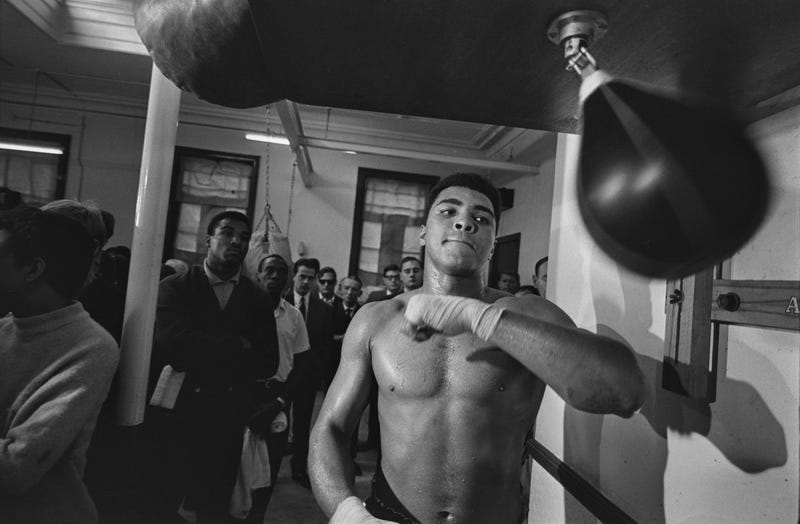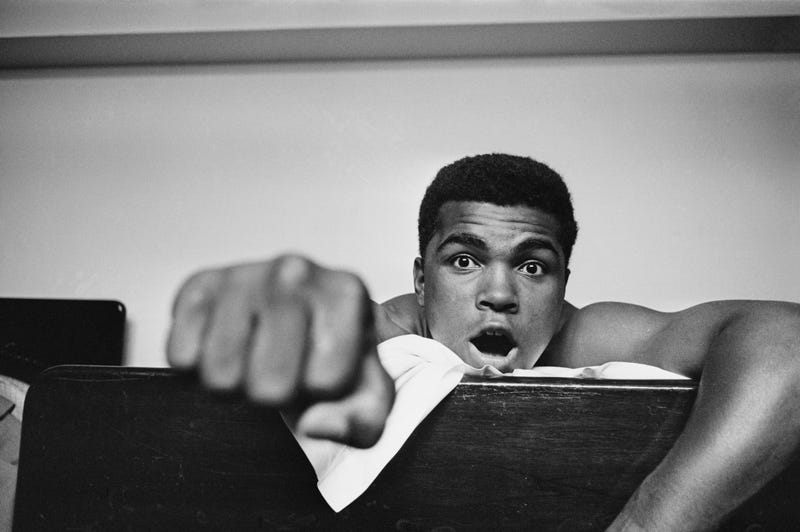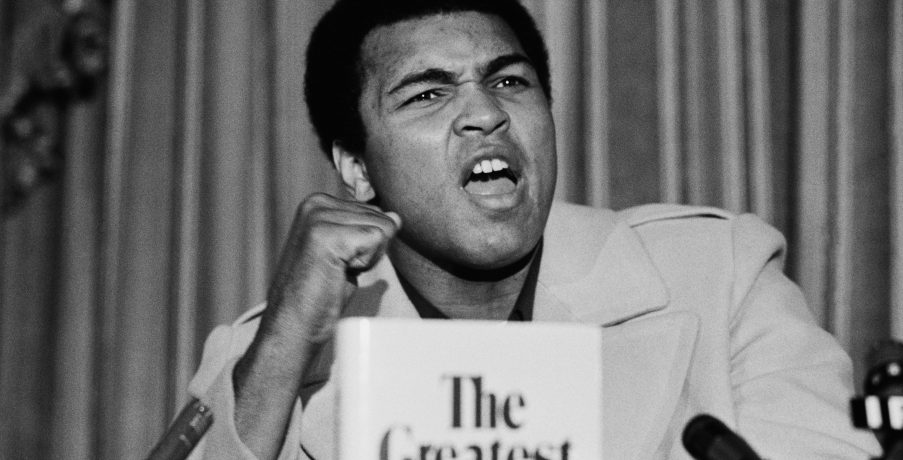
-
Ken Burns Explores Life and Legacy of Muhammad Ali in New Documentary Series
By Steve Scott, WCBS Newsradio 880
NEW YORK (WCBS 880) — Muhammad Ali is one of the greatest athletes of all time.
His exuberance and brash personality outside of the boxing ring sparked controversy and conversation unlike any other Black athlete of his generation.
Ali captivated people from all over the world and inspired athletes with his activism during the Civil Rights movement and his refusal to serve in the Vietnam War, which resulted in a draft evasion conviction and a suspension of his boxing license.
Award-winning filmmaker Ken Burns – who has told the stories of the first African American heavyweight champion Jack Johnson and Jackie Robinson, who broke baseball’s color barrier – will now explore Ali’s life in a new four-part documentary series that has been in development for six years.
“We focus on a lot of the fights, but also his faith, his conversion to Islam, his joining of a sect called the Nation of Islam, his fight with the United States government, his personal life, the many wives he had, the children, they’re all represented here,” Burns tells WCBS 880 anchor Steve Scott. “This is in every regard a hero’s journey. We just are so drawn to him. In all the biographies I’ve done, I don’t think I’ve ever come across a character that was so powerful and moved me so emotionally as Muhammad Ali.”

American boxer Muhammad Ali (1942-2016) training with a speed bag ahead of his fight against Britain’s Brian London, in London, England, 3rd August 1966. Photo credit R McPhedran/Daily Express/Hulton Archive/Getty Images In addition to the three-time heavyweight champion’s boxing feats, the documentary also explores Ali’s profound impact during the Civil Rights movement.
“Here’s Muhammad Ali kind of cut from a different mold. Brash and confident and different from the fighters that we’d seen before. He was not Sonny Liston in any way, shape or form and so he struts across his stage and begins to animate a new generation of African Americans, some of them impatient with the slow progress of the non-violent civil rights movement, some of them opposed to Vietnam, not wanting their kids to be the cannon fodder that African Americans were early on in the war. All of these different things he’s in intersection of it and as we begin to in a post-Vietnam era kind of blossom into a media culture in which celebrity becomes everything he becomes in a way bigger than life itself. And then the tragedy is, of course, absorbing all of those millions of blows is going to provoke this terribly restricting disease. It’s going to silence a loud and brash man, and yet, in that journey he finds a kind of inner peace and begins to sort of atone for all the things he’s done. I can’t begin to tell you, it’s so exciting to have worked on this.”
Ali died in 2016 at the age of 74 from Parkinson’s-related complications.

Muhammad Ali in London on May 27, 1963. Photo credit Len Trievnor/Daily Express/Hulton Archive/Getty Images While largely celebrated today as an icon of American sports and culture, Ali was not always widely embraced.
But Burns notes that at the end of his life, Ali became “the most beloved person on the planet.”
“This is a life that is beset by a terrible disease that sort of encases him and yet at the same time it’s this extraordinary arc and there was not a continent where people did not adore him,” Burns said. “And even Americans, some Americans who had grown to dislike him for his brashness, for his bragging, for whatever it might be and then obviously for his political and religious stances, came around to sort of respecting him and as America realized Vietnam had been a mistake, they began to forgive him, as he lost fights and then worked to come back and reclaim the heavyweight championship it’s one of the great, great stories of all time.”
The documentary titled “Muhammad Ali” premieres on PBS on Sept. 19.
It features interviews with his daughters Hana Ali and Rasheda Ali, his second wife Khalilah Ali, his third wife Veronica Porche, and his brother and confidant Rahaman Ali.
Others appearing in the film include activist and former basketball player Kareem Abdul-Jabbar, boxing promoter Bob Arum, former heavyweight champion Larry Holmes, civil rights activist Jesse Jackson, boxing promoter Don King and more.
Leading up to the broadcast, Burns will join PBS and The Undefeated to host a series of virtual events this summer called “Conversations on Muhammad Ali” that will examine Ali’s life and career in the context of America and the world today.
People can register for the events at: pbs.org/ali.
Produced by Neil A. Carousso







